
Jun 29, 2020 | Blog, Machine Learning, Artificial Intelligence, and Data Science
In November 2019, a customer of Apple Card complained when he and his wife separately applied for Apple Card credit, and his wife was given a credit limit twenty times lower than his despite the fact that they jointly owned all assets in a community property state. According to Neil Vigdor in an article in the New York Times, an Apple Card representative checked into the matter and came back with the explanation that “It was the algorithm.”

Jun 9, 2020 | Blog, Learning Organization
The American Productivity & Quality Center (APQC) has honored MITRE with its 2020 Excellence in Knowledge Management (KM) award, recognizing us as one of the top organizations in the world for our mature KM capabilities. MITRE scored a level five—the highest possible score—in most of the areas the association assessed.
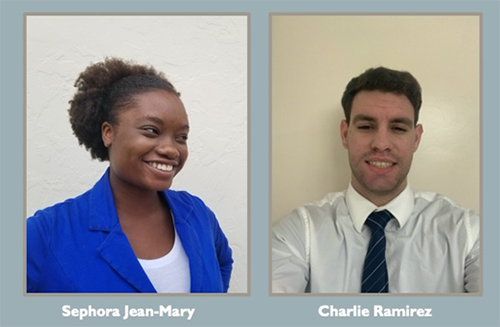
May 31, 2020 | Blog, Cross-Organizational Information Sharing
As graduating seniors at Florida International University (FIU), Charlie Ramirez and Sephora Jean-Mary headed into their final semester aiming to find a real-life business problem they could solve. Their senior design capstone project was supposed to enable these two front-end developers to display what they’d already learned as computer science students.

May 22, 2020 | Blog, Learning Organization
Military members and first responders learn early in their training how to deal with stress because of the inherent danger of their occupation. Although stress certainly comes with being in harm’s way, they may also experience stress that comes with facing the unknown, time pressures, and challenging tasks.
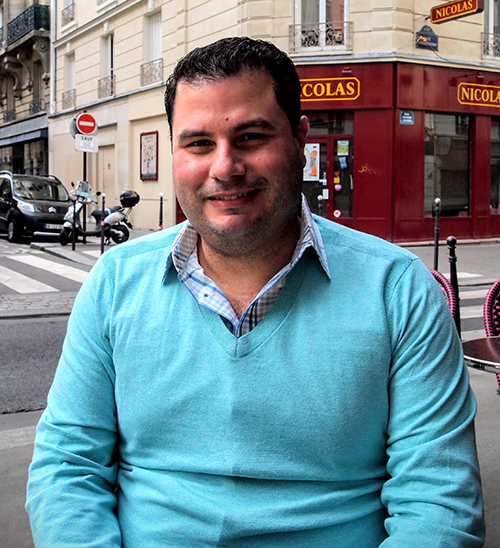
May 8, 2020 | Blog, Cross-Organizational Information Sharing
Despite our modern world, many systems aren’t built with uncertainty in mind. Alas, these unexpected events may become the new normal. Fortunately, Imanuel has been leading the charge to re-examine how we design and implement systems with new approaches that make them more resilient to the unexpected. Listen in as we explore how his work is helping the world prepare for the next natural disaster or global pandemic.

Apr 22, 2020 | Blog, Learning Organization
It’s an understatement to say that we’ve all experienced a lot of change during the coronavirus pandemic. Despite the challenges, some positives have come out of this situation, especially when it comes to how federal agencies and other organizations have quickly adapted to keep the government running and work moving. Organizational agility has been a goal for many years now, with numerous agency mission statements highlighting the need for it.
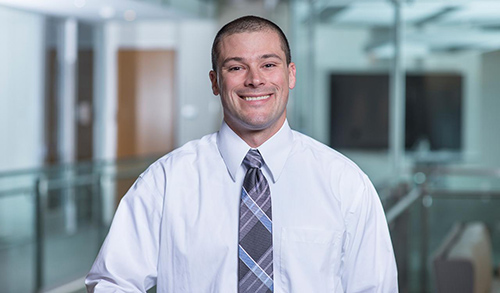
Apr 19, 2020 | Blog, Learning Organization
Agencies call on MITRE to help navigate all manner of unique challenges, but not all projects are lean enough for the innovations that agencies seek. That’s where Justin Brunelle comes in. Justin has developed a reputation as division technical integrator, helping pair trail-blazing research with government use cases.

Apr 6, 2020 | Blog, Collaboration, Partnerships and Social Media
As the Coronavirus began impacting social and professional life, I noticed a lot of friends, family, and acquaintances posting to social media that they were learning or relearning how to knit and crochet.

Mar 21, 2020 | Blog, Cross-Organizational Information Sharing, Knowledge Advantage, Learning Organization
MITRE’s talents for strategic modernization (e.g., enterprise planning, organizational change, business innovation, technology transitioning) are informed by both our explicit knowledge and our tacit knowledge. Explicit knowledge is what we objectively know. Explicit knowledge can be readily articulated, codified, stored and accessed, and transmitted to others, and represents an estimated 20% of our knowledge (e.g., plans, reports, data analysis). Implicit or tacit knowledge is more subjective.
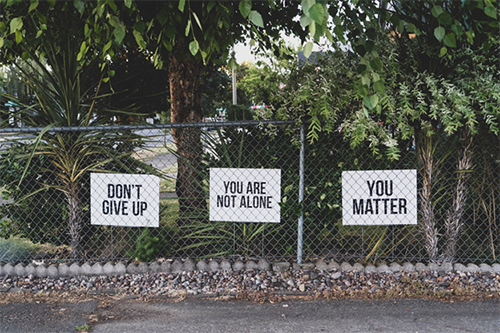
Feb 3, 2020 | Blog, Machine Learning, Artificial Intelligence, and Data Science
MITRE has taken on a challenge: to shape America’s future workforce and economy by alerting college students to the power of artificial intelligence (AI). That vision is now taking shape at schools across the country through an initiative known as Generation AI Nexus (Gen AI).
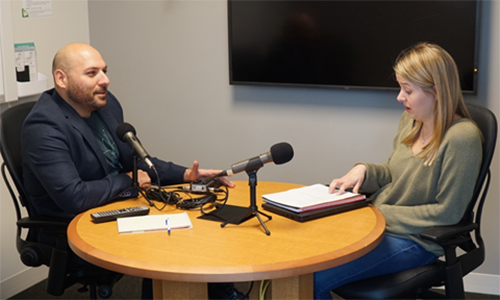
Feb 2, 2020 | Blog, Cross-Organizational Information Sharing
Rachel Mayer has grown up with medicine on the mind, but one subject has always been at the forefront: Maternal mortality. In a country as advanced and capable as the United States, why is Maternal Mortality still so high? While many public health practitioners often turn to medicinal interventions, she turned to data.

Jan 27, 2020 | Blog, Learning Organization
A recent discussion with colleagues on intriguing approaches and paths to innovation triggered my systems thinking habits – to explore and understand challenges systemically. What I ended up discovering were multiple dimensions of innovation, particularly for collaborative innovation.
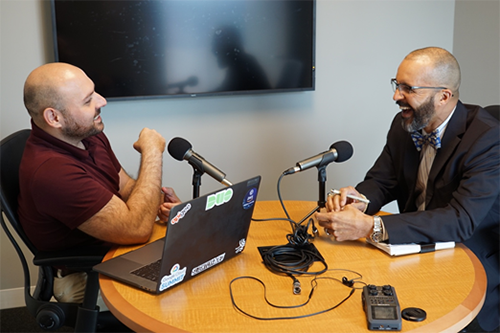
Jan 6, 2020 | Blog, Collaboration, Partnerships and Social Media, Knowledge Advantage
Theodore “Turtle” Wilson has made a name for himself inspiring change. MITRE has never been short on good ideas, but getting others to embrace those ideas is always a challenge. That’s when you need to call in someone who can empathize with the folks you want to help, while seeing the big picture—someone like Turtle.

Dec 16, 2019 | Blog, Knowledge Advantage
Delve into the history and meaning of risk, and you may be surprised to find that the word risk has an uncertain etymology. Depending on the domain, definitions of risk may be based on probability, danger, uncertainty, or chance.
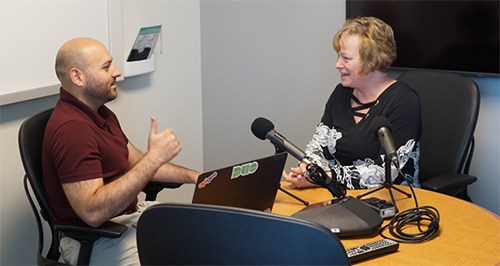
Dec 9, 2019 | Blog, Learning Organization
Innovation doesn’t just happen, and it cannot be forced. It takes time, effort, and commitment to find a new path forward. Still, sometimes asking the right question can set us on that path. That is the goal of MITRE’s Open Innovation Challenge.
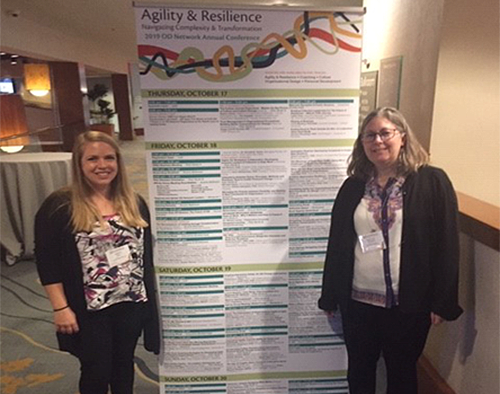
Nov 24, 2019 | Blog, Learning Organization
Every year, MITRE’s independent research and development program receives over 1000 research project ideas from across the organization and selects approximately 200 for funding. When Dr. Shelley Kirkpatrick received funding from the MITRE Innovation Program (MIP) in 2017 to research the principles of organizational agility, little did she know that three years later her work would be a big hit in Las Vegas.
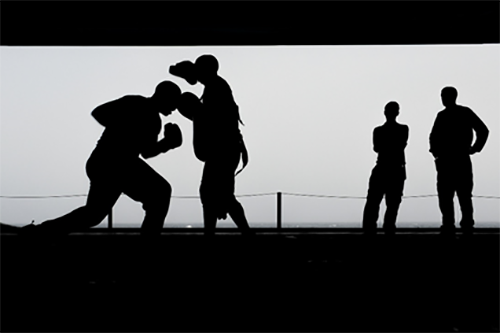
Nov 20, 2019 | Blog, Learning Organization
Most organizations typically plan for one type of opponent (one future) even though a better approach would be preparing for multiple opponents (multiple futures), building in the much-needed resiliency. One approach that helps build this resiliency into organization is Strategic Foresight, an approach developed by Herman Kahn in the 1950s to help the US contemplate and plan for various outcomes of the Cold War including Mutually Assured Destruction (MAD) using applications from game theory.
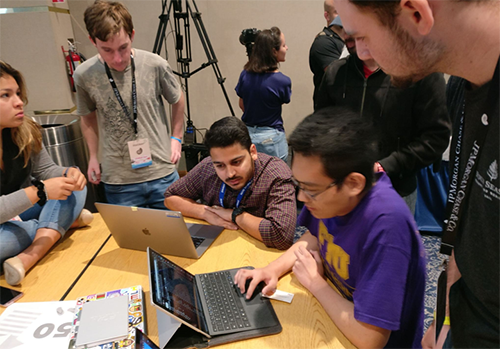
Nov 20, 2019 | Blog, Machine Learning, Artificial Intelligence, and Data Science
Instead of hitting the beach over the third weekend in September, more than 1,000 students from several Florida and southeast universities loaded up on caffeine, went without sleep, and were driven by a “will to do good.”
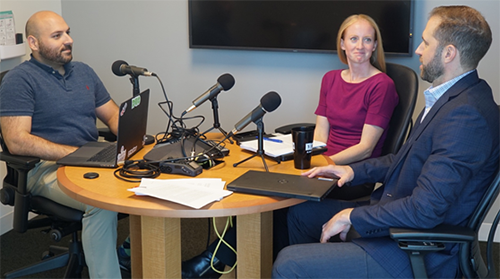
Nov 17, 2019 | Blog, Learning Organization
When you’re a large government organization, it can be hard to be innovative. You have a lot of moving parts and not a lot of time or resources. You can always lean on an innovation organization to help you along the way, but the question remains: “How do you know you’re really innovating?” Fortunately, Paula and Dan are on the case.

Nov 11, 2019 | Blog, Learning Organization
“Field of Dreams” is a delightful movie. If you haven’t seen it, do yourself a favor and curl up on a do-nothing night and watch it. But even if you haven’t seen “Field of Dreams”, I’m sure you’ve heard the most famous line from it, “if you build it, he will come.” But since language is more fluid than the ocean, and changes to suit the context du jour, you more than likely have heard it as, “if you build it, they will come.”




















